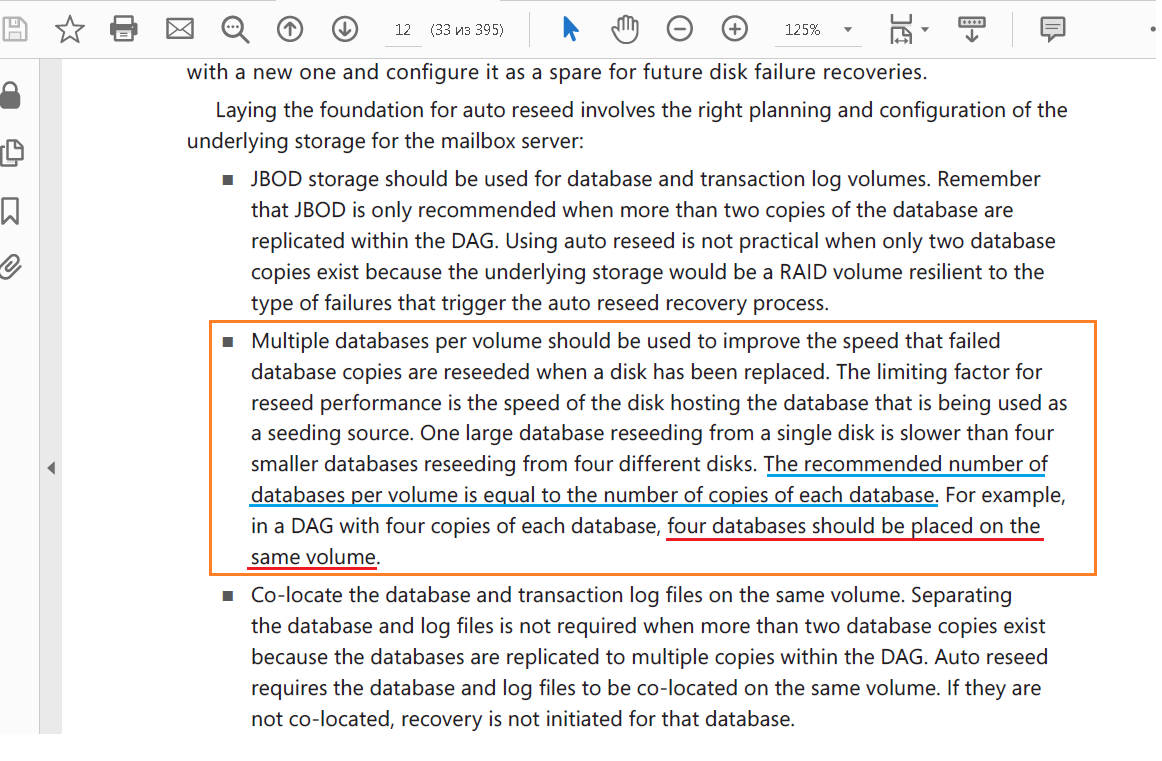Having 4 separate disks ( one for each database ) would be faster but prob not practical or cost effective, versus a Volume which is a section of a disk or spans multiple disks in a RAID.
Exchange was improved starting in Exch 2013 to allow multiple DBs on the same disk:
https://learn.microsoft.com/en-us/exchange/changes-to-high-availability-and-site-resilience-over-previous-versions-exchange-2013-help?redirectedfrom=MSDN
Hence, the recommendation to maximize the the number of DBs for speed with cost factored in.


